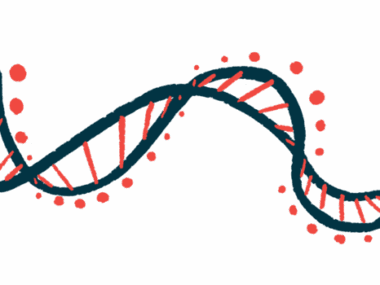Development of new CF gene therapy gets $320K NIH grant
Genexys Biomed's technology uses non-viral approach to deliver gene therapy
Written by |

Genexys Biomed has been awarded a $320,000 grant to advance the development of a novel gene therapy for cystic fibrosis (CF).
The small business innovation research grant was given by the National Heart, Lung, and Blood Institute, a branch of the National Institutes of Health.
The “grant is a significant milestone for Genexys Biomed and provides validation for our groundbreaking non-viral gene therapy platform,” Peter Alff, PhD, CEO of Genexys, said in a company press release.
CF is caused by mutations in the CFTR gene, which provides instructions to make the CFTR protein. This protein is essential for regulating the production of mucus. In CF, lack of functional CFTR leads to the production of thick, sticky mucus that builds up in the body’s organs and ultimately drives most disease symptoms.
Gene therapy involves delivering healthy copy of CFTR gene to patient’s cells
The basic idea behind gene therapy for CF is to deliver a healthy copy of the CFTR gene to a patient’s cells, thus allowing production of functional CFTR protein and ultimately normalizing mucus production. A notable advantage to this strategy, at least in theory, is that it’s expected to work equally well in all CF patients regardless of their underlying mutation. This sets gene therapy apart from other modern treatment strategies like CFTR modulators, which act to boost function of defective CFTR protein but can be used only in patients with specific types of mutations.
Common gene therapy strategies generally rely on one of two strategies to deliver their genetic payload to the body’s cells. Either they use a harmless engineered virus, or they use lipid nanoparticles (bubbles of fatty molecules that can deliver molecular cargo to cells). Viral vectors, for example, are generally efficient at delivering genetic cargo, but using a virus can sometimes trigger an immune reaction that makes the therapy less effective.
“Gene therapy holds immense promise for cystic fibrosis, but its clinical implementation has been impeded by the lack of safe and efficient delivery vehicles,” said Colin Sheehan, PhD, senior scientist at Genexys and lead investigator for the new grant.
Genexys, a subsidiary of Orange Grove Bio, is working to develop a nonviral, nonlipid platform for CF gene therapy. The company has not disclosed details about the specific molecular mechanism of its platform.
“Our non-viral delivery approach aims to overcome these hurdles, potentially improving outcomes for all CF patients, irrespective of their CFTR mutation, and offering new hope to affected patients and families,” Sheehan said.
New technology opens possibilities for treating wide range of genetic diseases
Alff added the company’s new technology “has the potential to overcome long standing challenges in cystic fibrosis treatment, while also opening up possibilities for treating a wide range of genetic diseases.”
Assem Ziady, PhD, a professor at Cincinnati Children’s Hospital who has helped to advance Genexys’ technology, said he is excited to see the new platform continue moving forward.
“This collaboration between academia and industry exemplifies how research can be translated into therapies for patients,” Ziady said. “We look forward to Genexys BioMed bringing this promising technology closer to clinical application.”







